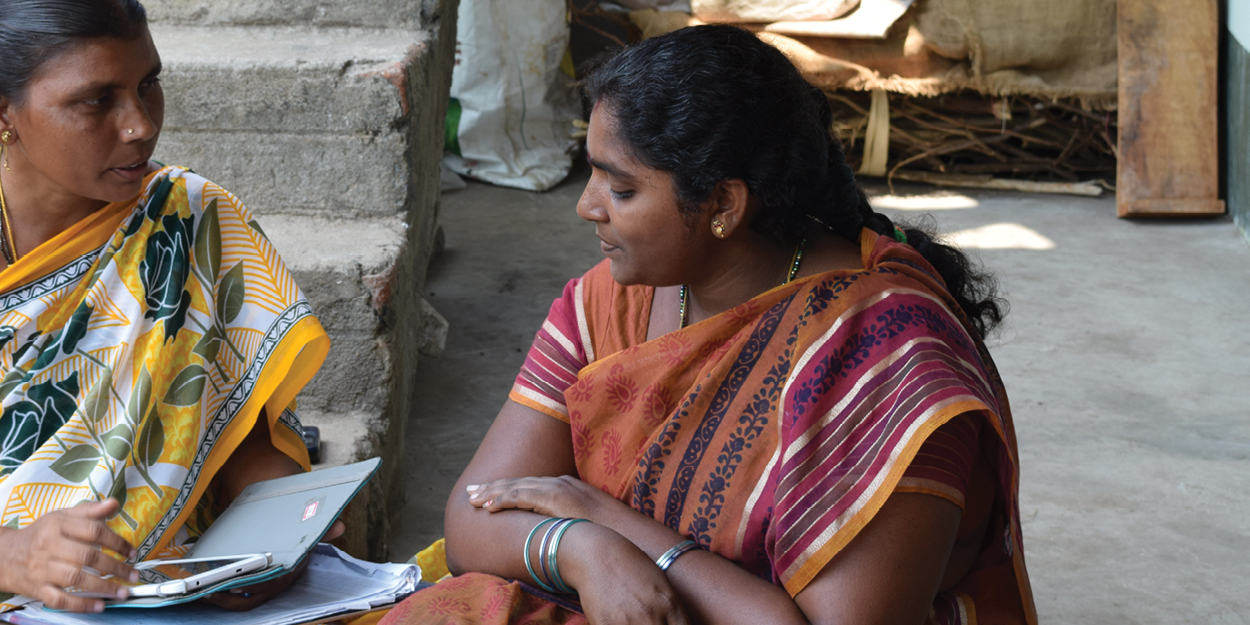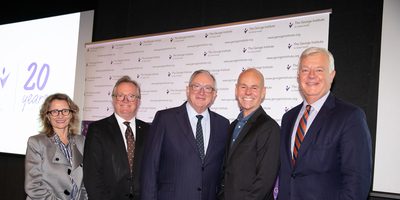
20 years of building capacity
One of the key challenges to improving health care in low- and middle-income countries is strengthening the local healthcare workforce, says Associate Professor Rohina Joshi.
Like so many other long-time staff members, Rohina started at The George Institute as a PhD student in 2003 and never left. Now an Associate Professor and Scientia Fellow at the Faculty of Medicine at UNSW Sydney, and Senior Research Fellow at the Institute, she looks back on her early days fondly.
“I really liked the clarity of thought in those initial months,” she recalls. “The Institute was so small at the time and it was just a fantastic atmosphere.”
Raised in northwest India on a mission hospital by a dentist and dietician, Rohina grew up in the medical world surrounded by healthcare professionals. It was there she first witnessed efforts to strengthen the capacity of local healthcare workers.
“Both my mum and dad did quite a lot of community outreach work so I heard a lot about the challenges,” she says. “My Alma Mater, Christian Medical College, Ludhiana established one of the first primary health care centres in the world. The community medicine department trained lay health workers and supported them to deliver primary health care.”
Rohina took these experiences into her professional life, beginning with a project to train community health workers to run a mortality surveillance system to determine which diseases were the biggest killers in rural India. Part of her PhD with The George Institute, the project identified premature deaths from cardiovascular disease and cancer as the biggest challenges.
“There were people with established cardiovascular disease who needed to be on full medication but were on nothing – only 6-10% were on adequate treatment,” she recalls. “These people did not have access to doctors, so we began to ask ourselves, if doctors aren’t available in these areas, who else can we train?”
Through her research with the Institute, Rohina and her colleagues began identifying ways that the health system could support non-physician trained health workers already in the community. However, she soon realised that training workers alone was only one piece of the puzzle.
"After the first study, we trained health workers to screen members of the community,” she says. “We soon realised that people can be screened easily enough, but if there are no medicines available in the pharmacy, or if the community simply doesn't believe in the primary health care system, then there's no point doing the screening in the first place."
Those early realisations led to projects with more emphasis on policy advocacy to facilitate greater change at the system level. Rohina has carried this approach throughout her 16 years with the Institute and now has PhD students in India, Ethiopia, South Africa and Nigeria working on similar issues.
She currently collaborates with the University of Melbourne and the Philippines Government to train doctors in using an electronic support tool to help them determine the cause of a person’s death. In the Philippines, most deaths occur at home which makes it difficult for the doctors to assign a cause of death. Inaccurate reporting of causes of death leads to poor decision-making, hence this initiative will enable the government to have reliable and timely data.
“We tested this approach in 50 municipalities and completed the pilot in July last year,” she says. “Looking at the data and acceptance by the doctors and community members, the government is now rolling out the intervention in a phased manner. I went back this year to train 90 trainers, who are going to train all the community doctors throughout the country.”
“This project started as research but now it's been translated into policy and is already in practice.”
For Rohina, it’s these kinds of concrete examples of impact that keeps her so passionate about the work the Institute does.
“Academic publications are important, but how do they translate into day to day practice? How do they improve somebody's health outcomes? How do we respond to local contexts and deliver impact? Answering those kinds of questions is really exciting for me – it keeps me going and I really enjoy the work.”
Celebrating 20 years: Rohina’s top moments
- Building a global research workforce: “I find it very rewarding when my students publish a paper or submit their thesis and graduate.”
- Research to practice: “After finishing the project, the Philippines government said: ‘We like this – we want to roll it out across the country’.”
- Making a difference: “Knowing that the work we do is actually going to have an impact and not just end up as a publication really keeps me going – it’s exciting.”


